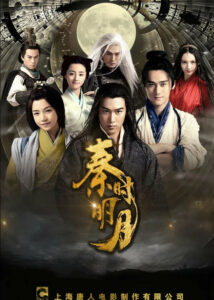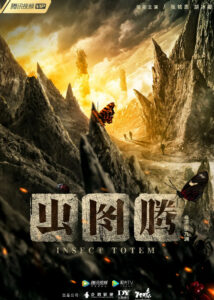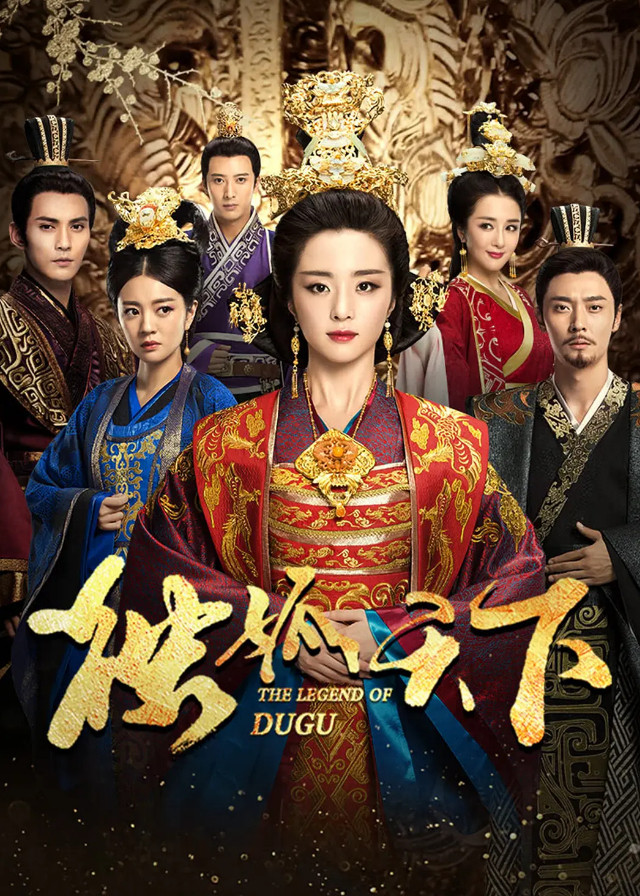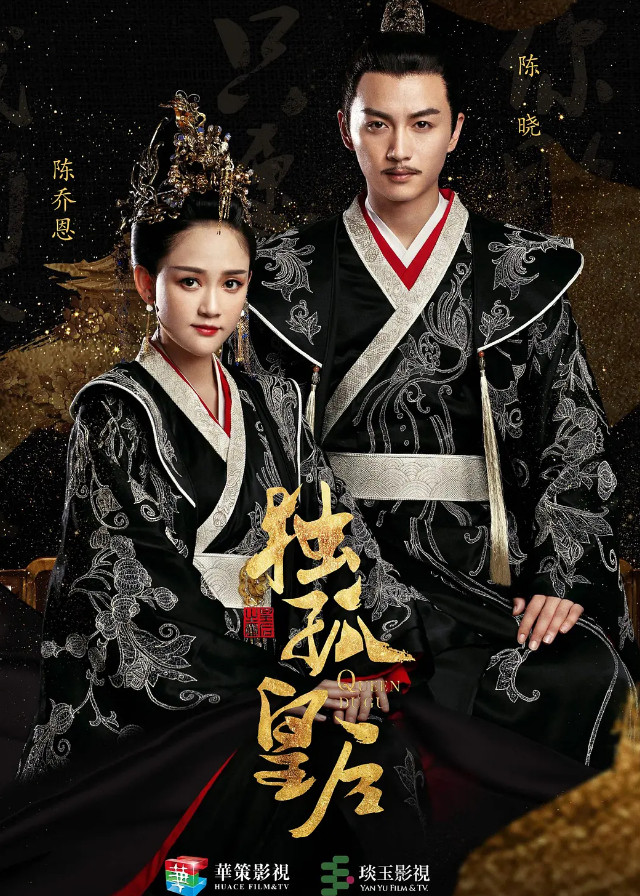The Legend of Dugu Episode 22 Recap
> The Legend of Dugu Recap
- 1
- 2
- 3
- 4
- 5
- 6
- 7
- 8
- 9
- 10
- 11
- 12
- 13
- 14
- 15
- 16
- 17
- 18
- 19
- 20
- 21
- 22
- 23
- 24
- 25
- 26
- 27
- 28
- 29
- 30
- 31
- 32
- 33
- 34
- 35
- 36
- 37
- 38
- 39
- 40
- 41
- 42
- 43
- 44
- 45
- 46
- 47
- 48
- 49
- 50
- 51
- 52
- 53
- 54
- 55
Banruo was deeply worried after learning that Yuwen Yu had been poisoned with mercury, a secret she had ordered the imperial physician to keep and to treat him covertly. She was certain Yuwen Hu was behind it, and that he planned to act against Yuwen Yu as soon as her child was born.
Banruo lamented her situation, reflecting on how Yuwen Yu had been poisoned for several months and how foolish she had been to believe Yuwen Hu would spare Yuwen Yu. She realized there was less than a year left, and Yuwen Hu had calculated that Yuwen Yu would die once the child was born. Desperate, Banruo sought help and advice from her father, Dugu Xin.
He was shocked to discover that Banruo was carrying Yuwen Hu's child and reacted with anger, slapping her and demanding to know how she could do such a shameless thing. Banruo's eyes welled up as she explained that she had no other choice; she had only given herself to Yuwen Hu to save Jialuo.
She clarified that if it were not for saving the emperor, she would not have told such a big lie, saying she could have lied and deceived him but couldn't bear to see the emperor die in vain for her. With her pregnancy advancing, she felt she had no other option but to beg for his help.
She pleaded with her father to call her brother Shan back quickly to take on the role of palace security, as this was the only way she could escape Yuwen Hu's surveillance and properly treat Yuwen Yu. Dugu Xin initially frowned, unwilling to engage, but Banruo continued to appeal to his emotions and reason.
She reminded him of the oath he had made to the former emperor and questioned if he could watch His Majesty die within one year of taking power. Dugu Xin affirmed his commitment to the former emperor, stating he already had plans for after his death, but pressed Banruo about her true loyalties, asking if the person in her heart was the emperor or Yuwen Hu.
Banruo insisted that it did not matter, only that Yuwen Yu, who was innocent, must not die in vain. She further provoked him by questioning the state of the Dugu's country he envisioned, with a puppet emperor and a queen committing adultery, claiming it was even worse than Yuwen Jue's empire. Finally, Dugu Xin agreed to help save the emperor and return to his role as prime minister to prevent Yuwen Hu from acting with impunity.
However, he imposed a condition: after Banruo gave birth, the child must be sent far away, and they would announce its early demise. Banruo reluctantly agreed, pleading with her father to find a good family for the child, not necessarily rich or prestigious, but one that would educate him, treat him well, and ensure his safe upbringing. She acknowledged that the child was a mistake and she couldn't let it continue to develop.
Meanwhile, Wang, an envoy sent by the Queen, arrived in Longxi alone. Mantuo was puzzled by her lack of attendants. Li Bing then appeared with Concubine Feng to welcome Wang. Feng immediately addressed Wang as "sister," which offended Wang. With an air of dignified displeasure, Wang stated that she was the daughter of the Duke of Luoyang, had served as a female official in the palace since the Wei Dynasty, and was related to Li Bing's deceased mother.
Therefore, she was Li Bing's maternal grandaunt, and questioned how a "lowly concubine" like Feng dared to call her "sister," suggesting Feng was either humiliating her or disrespecting Li Bing's mother. Seeing Wang's impeccable logic, Li Bing promptly ordered Feng to apologize. Feng reluctantly complied, but Wang pressed further, pointing out that Feng, despite being a concubine, lacked official concubine documents and was merely a "tongfang maid" (a high-ranking maid who sleeps with the master).
Wang accused Feng of having previously bullied the Queen's sister and treating her mistress abominably, crimes she deemed worthy of death. Feng, unable to counter Wang's sharp tongue, resorted to feigning a faint. Wang, unimpressed, splashed tea on her, forcing Feng to concede. Wang then decreed Feng's punishment: she was to kneel at the entrance of the courtyard for twelve hours daily for fifteen days, holding the Li family's rules above her head.
Additionally, the fifth lady, Feng's daughter, would temporarily be cared for by Mantuo. Li Bing, recognizing Wang's formidable presence and the extensive influence of the Dugu family, had no choice but to comply. After Li Bing left, Mantuo eagerly approached Wang, expressing her admiration for Wang's earlier display of authority. Wang then explained that she came alone because she was all Mantuo needed. Mantuo, feeling she finally had a strong ally, vowed to rely on Wang's guidance from then on.
Wang dismissed Mantuo's praise, stating she was merely following the Queen's orders and that she had practiced such "little tricks" in the palace for many years. Yuwen Yu excitedly visited Banruo to discuss names for their unborn child. His joy intensified upon hearing that Dugu Xin had agreed to resume his role as prime minister, believing Yuwen Hu would not dare to misbehave with Dugu Xin at court.
As they conversed intimately, Yuwen Yu fondly recalled their first meeting, admiring Banruo's spirited and impressive nature. He noted that Banruo had become more sentimental since her pregnancy, unlike her usual straightforward self. Banruo, however, was preoccupied with worry about the child, causing Yuwen Yu to comfort her and reassure her that their child would be born safe and sound.
She also advised him to be careful with his food and medicine, especially during her delivery, fearing remnants of Zhao Gui's influence. Later, the imperial physician secretly informed Banruo that he had discovered poison nut in the incense burner of the royal study. He explained that prolonged burning would lead to seizures and death, speculating that the poisoner, likely Yuwen Hu, suspected Yuwen Yu's improving health.
Banruo ordered the physician to replace the poison nut with something that would cause headaches but no harm, and to keep the discovery secret from Yuwen Yu. Alone, Banruo mused on Yuwen Hu's cruelty, realizing he did not want Yuwen Yu to live an extra day. Her maid Chunshi then asked if Banruo now loved His Majesty more than Taishi Yuwen Hu.
Banruo confided that while Yuwen Hu loved her, imperial power was more important to him, unlike Yuwen Yu, who always prioritized her. Recognizing the urgency, Chunshi urged Banruo to act quickly. Banruo conceded, acknowledging that her earlier plan to delay Yuwen Hu's actions was now impossible. Banruo devised a plan to stop Yuwen Hu's persecution of Yuwen Yu. She arranged to meet Yuwen Hu at Longxing Temple for incense offerings.
During their conversation, she recounted a frightening dream about a small pigeon being attacked by larger pigeons from his house after being released from a cage, dying quickly. She interpreted it as a divine warning, which Yuwen Hu initially dismissed as pregnant women's nonsense. Banruo, however, insisted on its importance, recalling her childhood dream of seizing the world, which had become a reality.
She then goaded Yuwen Hu, reminding him of his promise to only want their child and nothing else. She demanded he kill his other sons, born of his first wife, fearing they would try to kill their child once he became emperor and they were married. Yuwen Hu was horrified, refusing to kill his own blood.
Banruo pressed him, emphasizing that no son of his other wives could live, and even produced a red crane poison, claiming it would ensure a painless death if added to wine. As Yuwen Hu recoiled, calling her "savage" and "mad," Banruo seized the opportunity. In the ensuing struggle, she deliberately fell down the temple steps, causing her to go into premature labor. As the chaotic scene unfolded, Yuwen Hu, deeply distressed, watched from outside as Banruo endured agonizing labor.
Chunshi dramatically exaggerated Banruo's condition to Yuwen Hu, claiming both mother and child might die due to his cruelty. Meanwhile, a pre-arranged male fetus was prepared to be presented as Banruo's miscarried child. Banruo, pushing through immense pain, delivered her actual child, a daughter, with the midwife confirming her survival but stressing the need for a strong push.
After the birth, the midwife quickly secreted the daughter away to a charity house through a back door, while Banruo, just before losing consciousness, asked for one last look at her baby girl. Yuwen Hu, heartbroken, was shown the male embryo and believed it was his son, proclaiming that he couldn't save it. He was overcome with grief and remorse.
He later learned from Geshou that the stairs had been deliberately smeared with oil by someone from his own son, deepening his anguish and effectively distracting him from further harming Yuwen Yu. When Yuwen Yu was informed of Banruo's miscarriage, he was heartbroken but uninformed of the deception. He sorrowfully told Banruo that the child was not meant to be, urging her to take care of herself for future children.
Banruo, to deflect suspicion, blamed the incident on remnants of Zhao Gui's loyalists, telling Yuwen Yu that Zhao Gui's man was responsible for splashing essential oil on the stairs. She then explained that she had arranged for Chunshi to frame Yuwen Hu's son, ensuring that Yuwen Hu would back off and never act arrogantly towards Yuwen Yu again. Yuwen Yu was deeply moved by her continued devotion despite her own suffering.
Once Banruo recovered, she revealed the truth to Jialuo, explaining the entire scheme, including the fake fall and sending their daughter to the charity house. Jialuo was shocked at the extent of Banruo's suffering. Banruo then asked Jialuo to later write a letter to the emperor, asking to bring Banruo back so she could visit their daughter at the charity house.
Banruo expressed her sadness for Yuwen Yu, who truly believed in the miscarriage, and cried tears of pain and relief, hoping for a better future. Back in Longxi, Mantuo, with Wang's assistance, began organizing the household concubines by compiling a roster detailing their backgrounds and relatives. Most complied, but Pei Jinniang, proud of her noble birth and her brother's position as Li Bing's vice-general, refused to be managed, asserting she had official concubine paperwork.
Wang sternly rebuked her, emphasizing that a concubine, regardless of origin, still belonged to the servant class and could be "freely traded." She slapped Jinniang and had guards hold her down, threatening to have male guards if she wouldn't submit to the maids' punishment, which would jeopardize her standing with the duke. Jinniang defiantly mentioned giving birth to Li Bing's second son.
Wang seized the moment, stating that a duke's son should not call a concubine "mother" and that this was a crime against ethical laws. She ordered Jinniang be pulled to the pool to "sober up," despite Jinniang's protests and her son's pleas. Wang also suggested to Mantuo that she should raise the other concubines' children to consolidate her power, as children often granted concubines favor.
Mantuo was initially hesitant, not wanting "annoying children" under her care, and preferred to rely on the duke's increased respect for her after Wang's interventions. Wang, however, urged Mantuo to be more self-reliant, reminding her of her position as the legal wife of Longxi. She advised Mantuo to act with rules and protect her husband's reputation, rather than resorting to tears or tantrums like the concubines, stating that true marital respect came from managing the household effectively.
Mantuo, convinced, agreed to listen to Wang. Wang then tested Mantuo, asking what she would say if Li Bing discovered Jinniang's punishment. Mantuo confidently replied she would discuss the rules. Wang deemed this passable but not sufficient, explaining that while the duke might be furious about Jinniang's suffering, he would have nothing to say if Mantuo protected his reputation.












